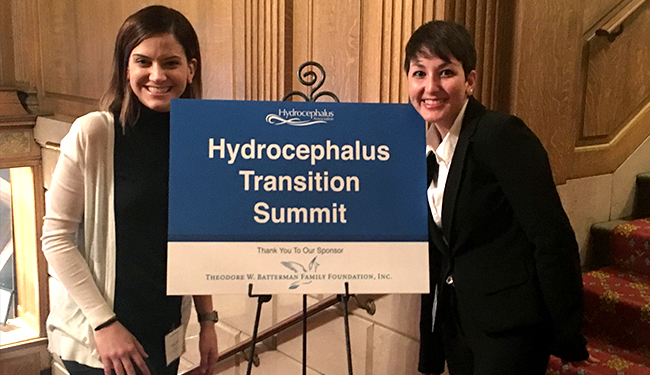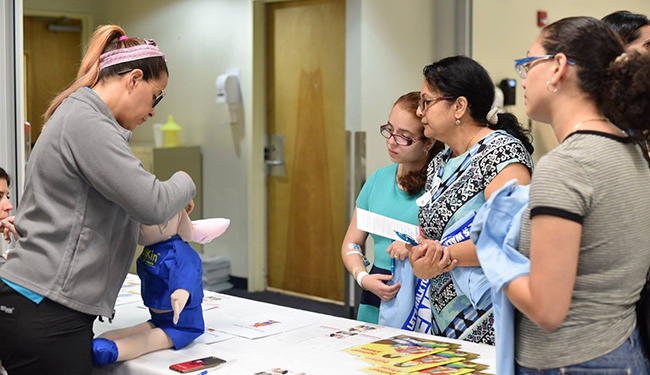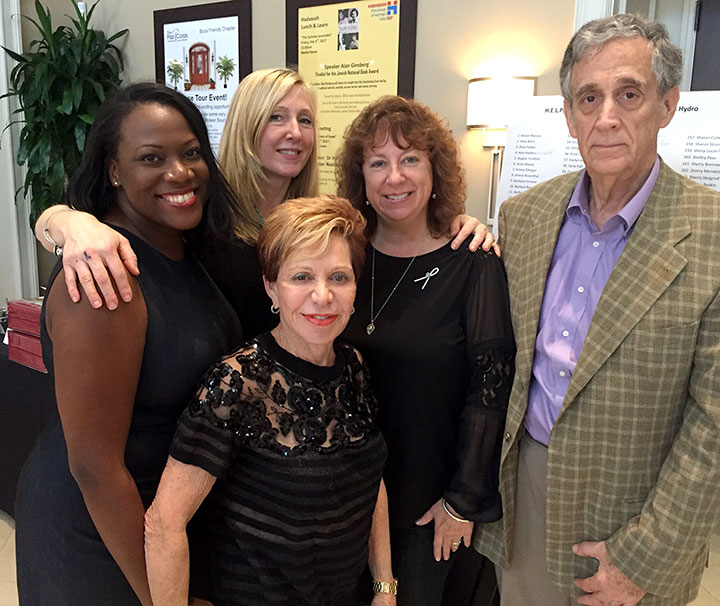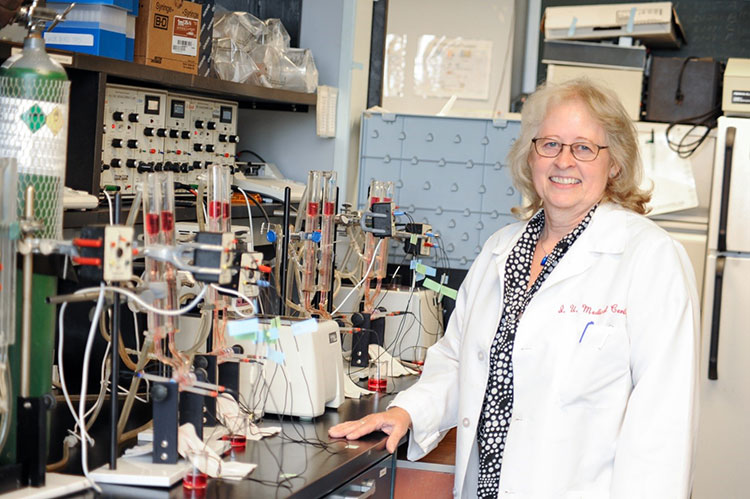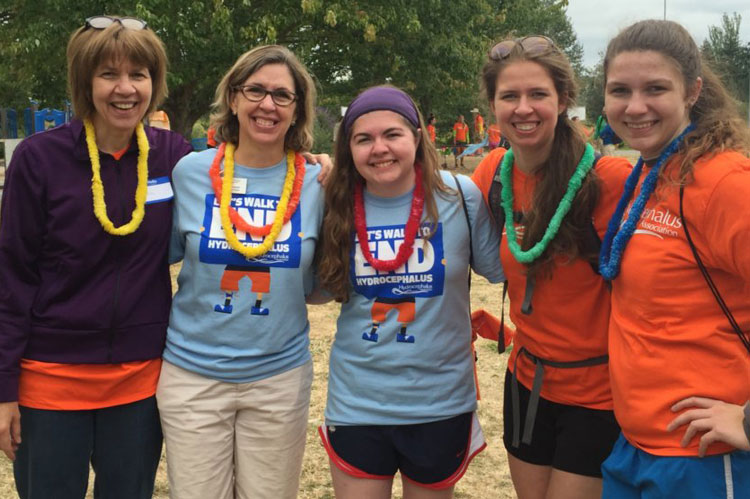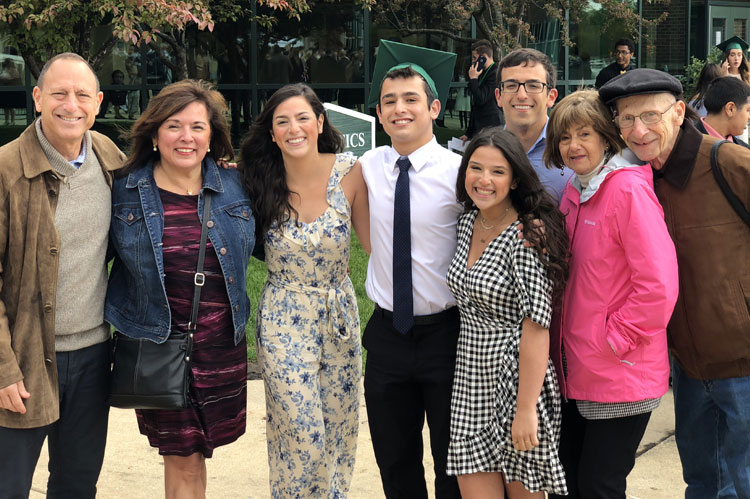President & Chief Executive Officer's Message
"As we look ahead, I am confident that we can change the future of hydrocephalus but it will take support from everyone who cares about this condition. Thank you for inspiring us and thank you for believing in us. With your help, I know we can continue to grow boldly!"
— Diana Gray, President & Chief Executive Officer
2017 was an impactful year with 8 new grants awarded to scientists and $1.8 million invested in bold and innovative research.
Since 2009, we have committed over $7 million in promising research to prevent, cure, and treat hydrocephalus and to improve the lives of those living with hydrocephalus.
Increased Hydrocephalus Research
Because of our initial grant funding, scientists Dr. Shenandoah Robinson and Dr. Lauren Jantzie were recommended for a DoD grant to study how a brain injury can cause hydrocephalus.
Expanded Our Research Networks
The Adult Hydrocephalus Clinical Research Networks added three sites, including our first European site.
HANDS Membership Doubled
The Hydrocephalus Association Network for Discovery Science (HANDS), a platform for both communication and collaboration among basic and translational researchers, added 75 new members bringing total membership to 150.
Published White Paper on Hydrocephalus Clinical Research
Following the Translation to Transform workshop, which brought together patients and clinical researchers, we published a white paper in 2017 outlining concerns and recommendations for conducting hydrocephalus clinical research.
Launched Roadmap to a Cure to Invest $20M by 2020
The Roadmap to a Cure campaign aims to raise $20 million by 2020 to accelerate hydrocephalus research, expand patient support services and raise public awareness about hydrocephalus.
2017 Vision Dinner Helped Accelerate Our Research
Thanks to our 2017 Vision Dinner, we are now much closer to our goal of raising $3M for research focused on Post Hemorrhagic Hydrocephalus (PHH), which develops as the result of a brain bleed.
Since the Hydrocephalus Association’s inception, our knowledgeable staff, with guidance from our Medical Advisory Board, has provided support and education for families and medical professionals impacted by hydrocephalus.
Our staff provides one-on-one support through our email and a toll-free hotline, educational materials, webinars, and conferences to help families and medical professionals expand their knowledge on hydrocephalus, and we connect local patients and families through our Community Networks.
“In the days after Declan’s diagnosis, the Hydrocephalus Association was invaluable and helped us understand what was happening with our son. That’s why I decided to volunteer for HA. I want to be there for the newly diagnosed, who are just starting this journey, and be supportive when hydrocephalus turns your life upside down, just like others were there for us.”
— Kayleigh Brodeur, co-leader of the Hydrocephalus Association’s Virginia Community Network
To bring attention to the lack of treatment options for the one million Americans living with hydrocephalus, we launched our #NOMOREBS – No More Brain Surgeries – multimedia campaign.
The campaign shared personal experiences and milestones missed due to the shocking number of brain surgeries patients must undergo during their lifetime due to hydrocephalus or its many complications.
#NOMOREBS Aims to Reduce the Number of Brain Surgeries for People Living with Hydrocephalus.
5,000
UNIQUE VISITORS
to nomorebrainsurgeries.org
16,309
SOCIAL ENGAGEMENTS
“Our plans as an association are bold. The struggles our patient population face are real. We cannot continue to be invisible. We must help others understand the urgency of our mission so that they can join us in changing the future of hydrocephalus.”
— Amanda Garzon, National Director of Program Services and Communications for the Hydrocephalus Association
At the Hydrocephalus Association, we could not fulfill our mission without a dedicated team of volunteers. Our volunteers are some of the most passionate people out there. Our largest volunteer-led event is our WALK to End Hydrocephalus.
Make Waves for Hydrocephalus: Unique Fundraising Events
11 Unique Fundraising Events
Through our Make Waves for Hydrocephalus Do-It-Yourself fundraising tool, individuals interested in raising money to support our mission organized local fundraising events ranging from basketball tournaments and poker runs to concerts and 5K runs.
$2M
Raised to Support Hydrocephalus Research & Programs
120
VOLUNTEERS
Helped Support Our Mission
“Our goal is to make possible the necessary research so that children will never need shunt revisions or, even better, discover a way to eliminate shunts completely without consequence, and cure this condition...”
— Iris Adler
Federal legislation can impact hydrocephalus in various ways – from funding for hydrocephalus research to workplace protections.
That’s why we monitor legislation in Congress and partner with our community advocates to make our voices heard. Last year, we mobilized advocates on key pieces of legislation – and these efforts paid off.
Advocacy Position Statement Published
Our statement detailed where we stand as an association on four key policy issues – health care, education, labor, and science and research.
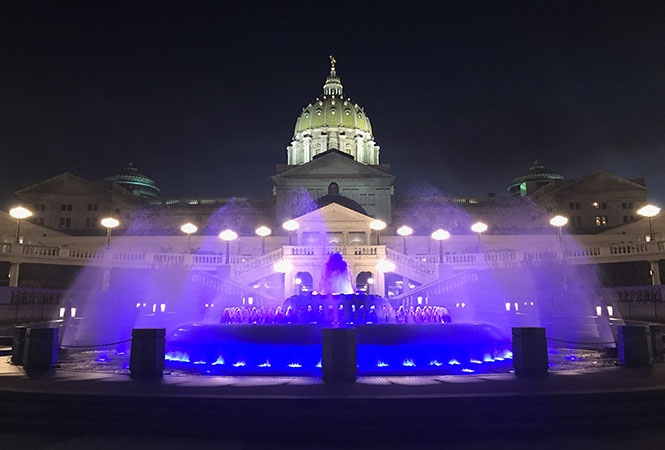
241
ADVOCATES
Engaged Members of Congress through Our Hydrocephalus Action Network
Ensuring Funding Through DoD
We helped ensure hydrocephalus remained an eligible condition for Department of Defense Research Funding.
Rare Disease Week
During the 2017 Rare Disease Week, held Feb. 27 through March 2, we joined hundreds of patients, caretakers, and rare disease organizations on Capitol Hill to advocate on behalf of the rare disease community.

500
CAPITOL HILL MEETINGS
Held as Part of Rare Disease Week and the Rally for Medical Research
Rally for Medical Research
On Sept. 13, 2017, we joined hundreds of health organizations on Capitol Hill for the Rally for Medical Research, which helps raise awareness about the importance of continued investment in medical research and about the challenges of living with hydrocephalus.
Fighting for Key Health Provisions
We worked to ensure key health provisions were included in the Continuing Resolution. The 2-year budget deal passed by Congress has a number of health provisions for which we had active engagement with our legislators via members of our community.

“I can’t begin to tell you how beneficial HA and the conference was for my family. HA has been extremely supportive and we just want to give back the best way we can.”
— Rick Williams, Father and Husband, Elmhurst, IL
In 2017, we continued to invest in high-impact research, while providing much-needed support and education to patients and their families, and medical professionals. When you invest in us, you're helping the 1 million Americans living with hydrocephalus thrive, not just survive.
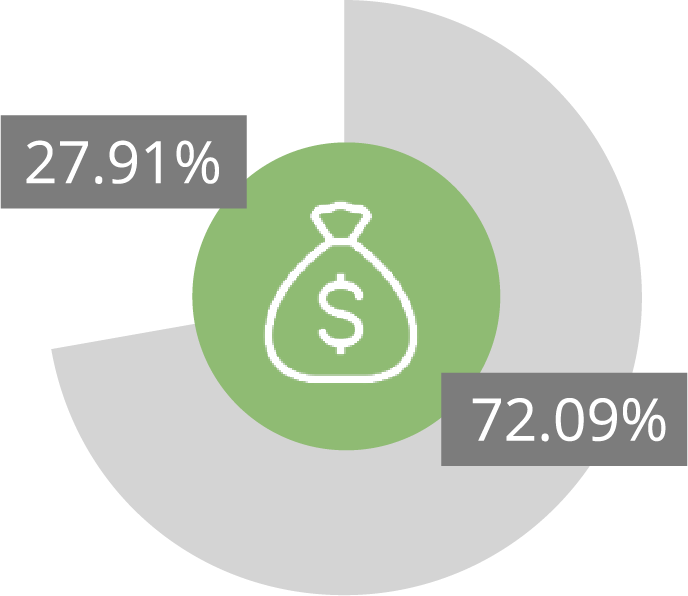
Total Program Services 72.09%
Total Supporting Services 27.91%
Total Expenses 100%


